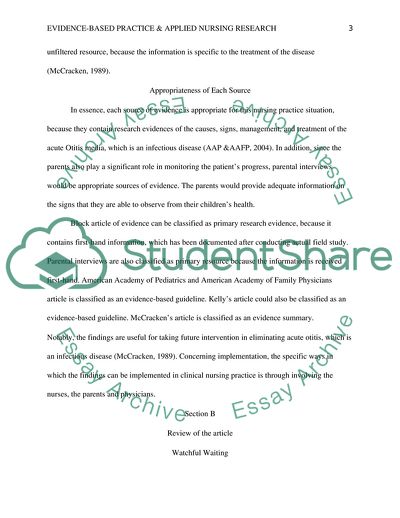Cite this document
(EVIDENCE-BASED PRACTICE & APPLIED NURSING RESEARCH Essay - 1, n.d.)
EVIDENCE-BASED PRACTICE & APPLIED NURSING RESEARCH Essay - 1. https://studentshare.org/medical-science/1765118-paediatric-infectious-disease
EVIDENCE-BASED PRACTICE & APPLIED NURSING RESEARCH Essay - 1. https://studentshare.org/medical-science/1765118-paediatric-infectious-disease
(EVIDENCE-BASED PRACTICE & APPLIED NURSING RESEARCH Essay - 1)
EVIDENCE-BASED PRACTICE & APPLIED NURSING RESEARCH Essay - 1. https://studentshare.org/medical-science/1765118-paediatric-infectious-disease.
EVIDENCE-BASED PRACTICE & APPLIED NURSING RESEARCH Essay - 1. https://studentshare.org/medical-science/1765118-paediatric-infectious-disease.
“EVIDENCE-BASED PRACTICE & APPLIED NURSING RESEARCH Essay - 1”. https://studentshare.org/medical-science/1765118-paediatric-infectious-disease.


